Best Supplements for Gut Health: How to Support and Reset Your Digestive System
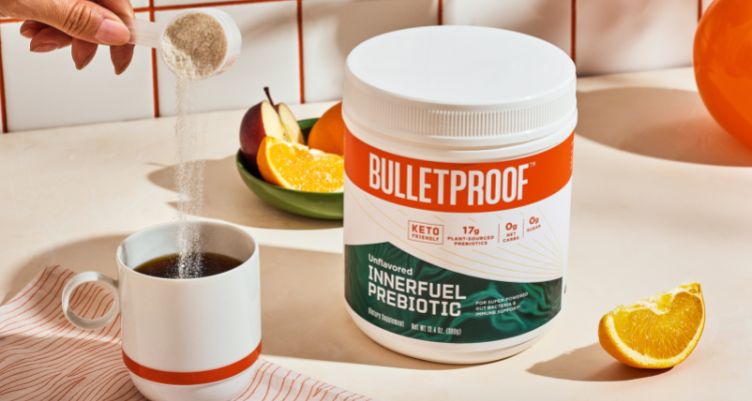
- Your gut is home to trillions of gut bacteria. These microorganisms help absorb more nutrients from food, promote immunity and support regular digestion.
- When your diet can’t deliver optimal nutrition, gut health supplements may help fill the gaps.
- Learn about the best supplements for gut health and how to promote gut health naturally.
Gut health is a foundation of overall health. When you have a healthy gut, your whole-body benefits—you’re able to support a healthy immune system, skin and possibly even promote positive mood changes.
While a healthy gut starts with a nutrient-dense diet, certain gut supplements can provide additional support to the gut and help you feel at your best. If you’re wondering how to support gut health naturally, keep reading for details about digestive health supplements that promote a healthier, more balanced digestive system.
What Are the Signs of an Unhealthy Gut?
Bloating, constipation and food sensitivities are all telltale signs that your gut could use some extra love. However, since the gut microbiome can impact every organ in the body, it may also affect other unsuspecting areas, such as the skin and the brain.
Here are the signs of an unhealthy gut:
Stomach discomfort
Everyone experiences symptoms of gas, bloating, constipation and diarrhea from time to time. But if it becomes a frequent issue, it may be a sign of bowel concerns.[1]
Mood issues
If you’re feeling down after eating, it might not be all in your head—literally. The gut and brain have a two-way communication network in what’s called the “gut-brain axis.” When your gut is out of balance, it can send distress signals to the brain, potentially triggering mood changes, such as occasional anxiety or brain fog.[2]
Skin concerns
Dealing with breakouts, redness or irritation? Your skin may be revealing what’s going on in the gut, also known as the gut-skin axis. One meta-analysis found that gut imbalances are linked to those with inflammatory skin disorders, such as dermatitis or acne.[3]
What Is the Best Supplement for Gut Health?
We know that healthy gut bacteria flourish when we eat a diet rich in whole foods. Think colorful fruits and vegetables, and minimally processed foods and refined sugars.[4]
But let’s be real: it can be challenging (and sometimes boring) to consistently eat healthily. That’s where gut health supplements come in. These supplements can provide nutrients that may be lacking in your diet, support your beneficial gut bacteria and even support a stronger gut lining.
Probiotics
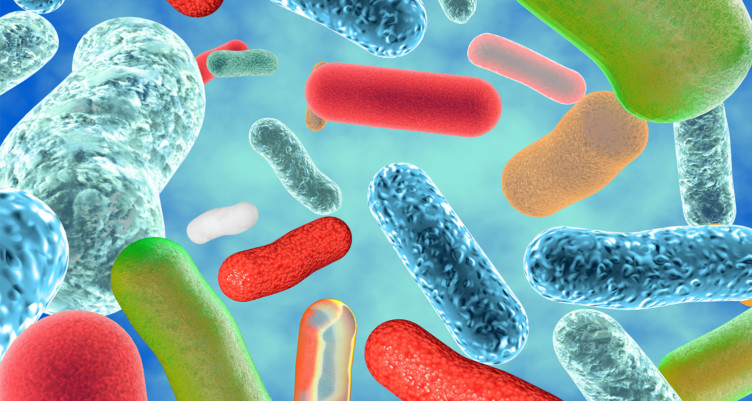
Your gut microbiome is home to trillions of microorganisms that maintain health and serve as your first line of defense against pathogens and unwanted bacteria.[5] Gut health and immune health are inextricably connected in this way.
Probiotics are beneficial bacteria that help regulate the gut microbiome, supporting immune health and other aspects of overall well-being.[6] When you look up “how to improve gut health naturally,” you can usually find information about probiotic-rich foods like:
- Yogurt and kefir
- Fermented foods, like sauerkraut and kimchi
- Fermented soy products including miso, natto and tempeh
- Kombucha
According to a 17-week randomized prospective study published in 2021, eating a diet rich in fermented foods fermented foods promoted microbiome diversity and supported gut health.[7]
Beyond fermented foods, probiotic supplements are also available. The most common strains used are Bifidobacteria and Lactobacillus, along with Bacillus, Saccharomyces, Escherichia, Streptococcus and Enterococcus. These strains may offer specific support for areas of health, ranging from supporting weight management, to everyday regularity and digestion to supporting a healthy immune system.
Prebiotics
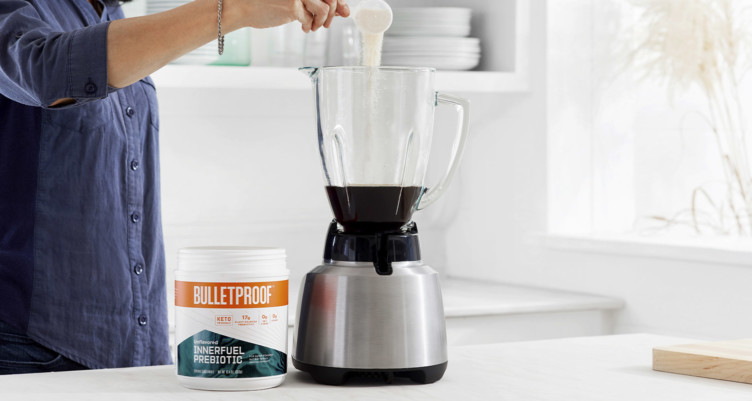
When it comes to gut health, the debate of “prebiotics vs probiotics” comes up a lot—and for good reason. While probiotics are beneficial gut bacteria, prebiotics are the indigestible nutrients that feed those bacteria.
Prebiotic fiber passes through your digestive tract without breaking down like the macronutrients fat, protein and carbohydrates do. Once prebiotic fiber arrives in the large intestine, the bacteria present in your colon ferments the prebiotic, which supports digestive health.[8]
Prebiotics provide nutrition for the beneficial gut bacteria which results in:
- Increased populations of helpful Bifidobacteria and Lactobacilli
- Greater production of beneficial metabolites
- Decreased growth of bad bacteria
- Support for immune system defense
- A positive impact on the permeability of the gut barrier
Digestive Enzymes
Digestive enzymes are one of the best digestive health supplements. They help break down the carbohydrates, proteins and fats in food, making it easier for your body to absorb key nutrients. This can help ease common digestive issues, such as gas, bloating and stomach pain or cramps.
Your body naturally produces digestive enzymes, and they’re found in certain foods like pineapple, bananas, papaya, kefir, avocados and honey. But if you have food intolerances, digestive conditions or simply struggle to break down food, a digestive enzyme supplement can help.[9]
L-Glutamine
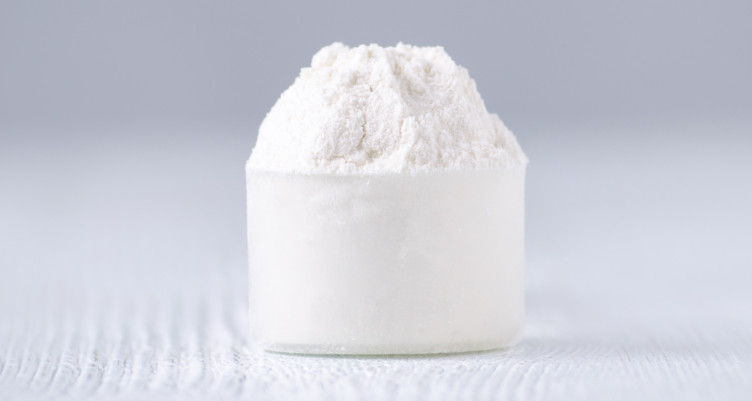
L-glutamine is an amino acid that has been found in animal studies to help support a healthy intestinal lining. More clinical studies are necessary to understand if it has the same beneficial effect on healthy humans.[10]
You can find L-glutamine as a powder or supplement. It’s also found in animal proteins like beef, chicken, fish and eggs, leafy greens and fermented foods.
Collagen
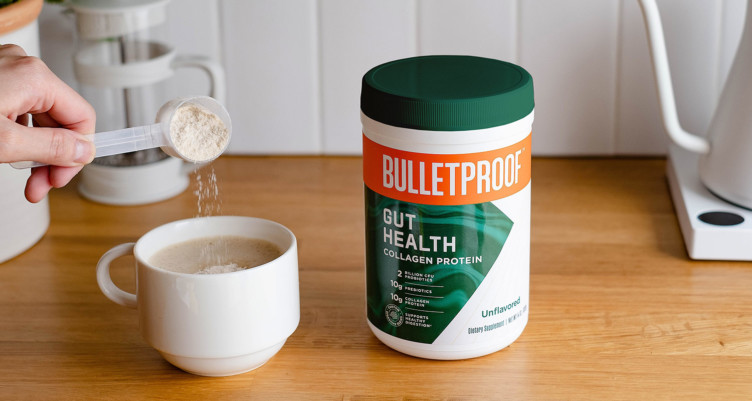
As the most abundant protein in the body, collagen makes structures throughout your body, including your bones, connective tissues and digestive tract. Collagen forms the structural framework of your GI tract, provides building blocks for a healthy gut and supports healthy joints and bones.
Your body naturally makes some collagen, but it mostly relies on getting collagen’s building blocks from food. Both organ meats and bone broth are rich sources of amino acids that form collagen, but most people don’t eat enough to produce adequate supplies of collagen. That’s where a collagen protein supplement can offer support.
Bulletproof Gut Health Collagen Protein contains collagen, as well as prebiotics, probiotics and zinc carnosine to support a healthy gut microbiome.[11] Because it’s unflavored, you can mix this beneficial formula into both hot and cold foods and beverages.
Slippery Elm
The inner bark of the slippery elm tree (Ulmus rubra) has historically been used for its soothing properties. That’s why it has been used tradionally for everything from easing sore throats to soothing the lining of the stomach and intestines.[12]
As a go-to gut health supplement, we slippery elm bark to The MaximizerTM—our enhanced coffee that gives you energy, metabolism and microbiome support all in one cup.
How Do I Reset My Gut and Digestive System?
If your gut’s been out of whack for a while, quick fixes won’t cut it. You might need a gut reset protocol that pairs key lifestyle changes with targeted supplements.
Lifestyle changes
Small daily habits have a big impact on the gut. From following a healthy diet to getting enough sleep, try these lifestyle changes to help the digestive system function optimally.
- Eat probiotic foods: Consume more fermented foods that are rich in probiotics, such as sauerkraut, kimchi, kombucha, kefir and yogurt. Pay attention to how you feel after eating these foods. If you experience bloating or constipation, consider reducing or pausing your consumption.
- Add more fiber: Fiber ferments in your gut and becomes food for your gut bacteria, instead of just passing through. It also benefits digestion and promotes regular bowel movements. Both prebiotic fiber and resistant starch feed beneficial gut bacteria.[13] When fiber ferments in your gut, it’s broken down into short-chain fatty acids that support gastrointestinal health. Here are some tips for getting more vegetables in your diet.
- Drink bone broth: Collagen-rich bone broth delivers essential amino acids to fortify and rebuild your gut and tissues. Look for broth from 100% grass-fed beef or free-range chicken for a savory, satisfying snack. Or simmer a DIY version with this Homemade Bone Broth recipe.
- Get enough sleep: Your microbiome changes when you don’t get enough sleep. Studies have found that sleep loss negatively impacts the ratio of bacteria in your gut.[14] Aim for seven to nine hours a night.
Take targeted supplements
To give your gut a clean state, you can’t go wrong with any of the supplements we’ve mentioned above. But if you’re starting with just one, try Bulletproof Innerfuel Prebiotic. It contains 17 grams of plant-based prebiotics for gut health and immune support.† It includes Larch Arabinogalactan, an immune-supporting ingredient naturally derived from the bark and heartwood of the Larch tree. It also provides free-radical fighting polyphenols.
When to See a Healthcare Provider
While gut health supplements offer many benefits, they’re not a cure-all. If you’re dealing with ongoing digestive issues, such as severe gas and bloating, unexplained weight loss or changes in bowel habits, you may want to see a healthcare provider.
They can help diagnose digestive conditions and create an effective treatment plan. They may also guide you on the best gut health supplements to take for your specific concerns.
Sign up for early access to sales, product launches, the latest Bulletproof news and more!
This article has been updated with new content and was originally published April 22, 2021.



